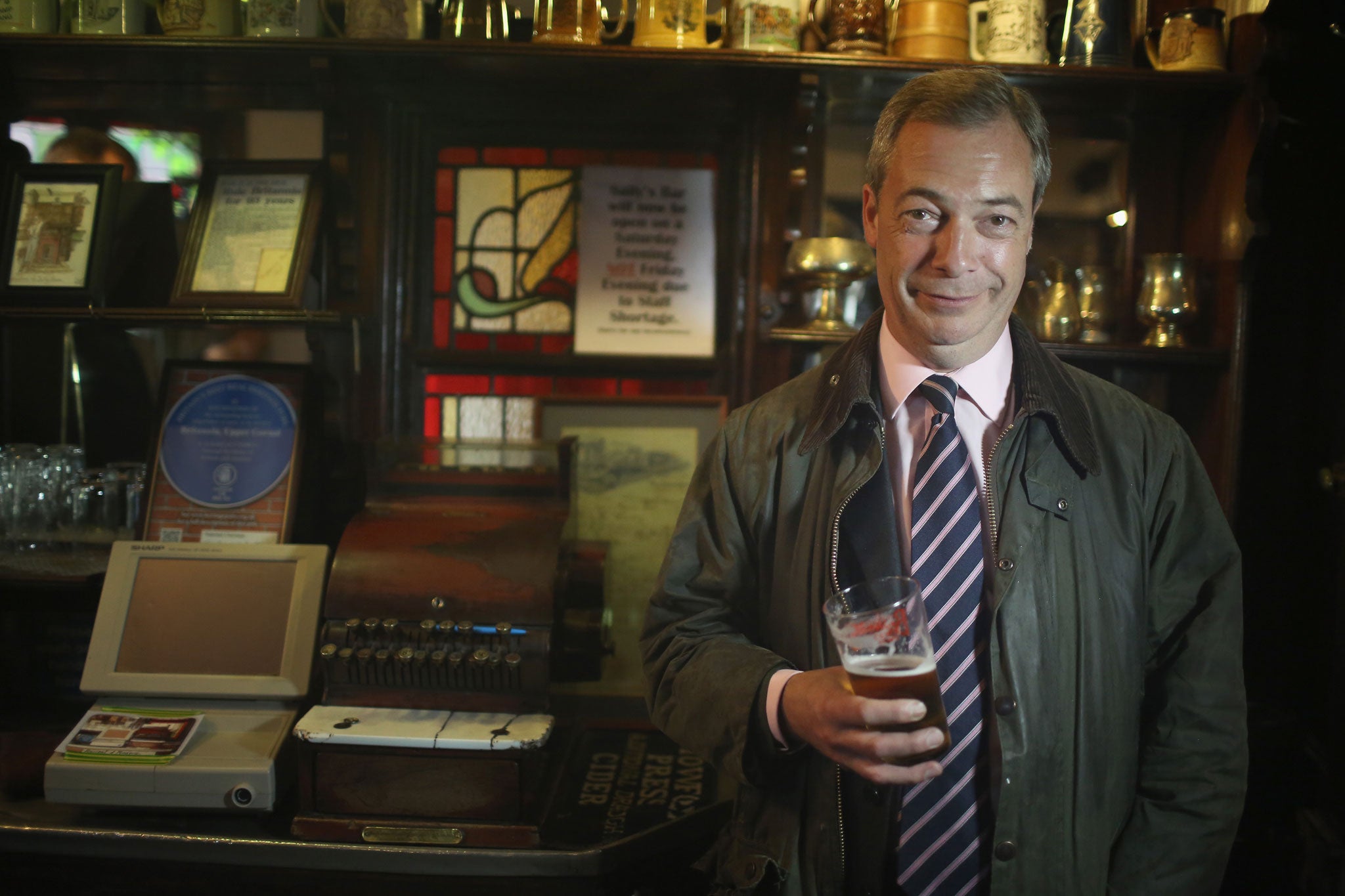The Purple Revolution: The Year That Changed Everything by Nigel Farage, book review
Nigel Farage's updated memoir shows he hasn't updated his views since the 1980s

At least he didn't call it his booky wook, but stealing the Mark of Stupid from the undemocrat Russell Brand tells us rather more than we need to know about Nigel Farage. That device of spelling Revolution with a reversed "love" in the middle dates back to The Beatles, when at least it was original. Now all it does is show how much Ukip has in common with the mindless anti-politics of "Don't Vote" Brand.
This is a strange book. Farage has already published his autobiography, Flying Free, only four years ago. The new book is justified by the subtitle, "The Year That Changed Everything", and purports to tell the story of the party since it won the largest share of the vote in last year's European Parliament elections. But it goes over the life story again: school days at Dulwich College; his time as a City metals trader; his car crash, plane crash and other experiences of the NHS. Only then does it get on to the less interesting politics.
There is a case to be made for Ukip – no, wait, bear with me. Withdrawing from the European Union is a perfectly respectable policy. For much of the 1970s and 1980s it was, off and on, Labour Party policy. Until the Green Party gained a few members of the European Parliament it too wanted to leave the EU. Indeed, its current policy is to reform the EU well beyond the limits of the possible, and the party is not very clear about its policy in the event that such changes are not forthcoming.
So it might be possible for Farage to make the arguments for "egalitarianism in one country" that used to animate parts of the British left. He has, after all, been quite smart in adjusting Ukip's target from reactionary Conservatives to working-class Labour supporters. Lord Ashcroft's opinion polls suggest that Ukip, as a result, has a reasonable chance of winning at least two Labour seats in May: Great Grimsby and Dudley North. One of the arguments Farage makes is that the free movement of workers throughout the EU has held down wages for low-skilled labour.
But oh dear. How accurate David Cameron turned out to be when he described Ukip as "a bunch of … fruitcakes and loonies and closet racists mostly". Farage himself is not, I think, a racist, but the more I read, the less impressed I was. He says: "I don't think my political thoughts and ideology have changed radically since I left Dulwich." That was in 1982. It is not something of which a self-aware person would be proud.
The chapter on his time in the City is most telling. He did not like the Big Bang, the liberalisation in the 1980s that brought foreign, mostly American, banks to the City and which formed the basis of its success since. He objects to "regulators (God I hate those people)" – the people who try to ensure that markets operate according to rules designed to protect the vulnerable against sharp practice. But it is the stupid boasting about the long, boozy lunches of the old days that makes me realise that Farage stands for everything that this country was right to leave behind.
Join our commenting forum
Join thought-provoking conversations, follow other Independent readers and see their replies
Comments